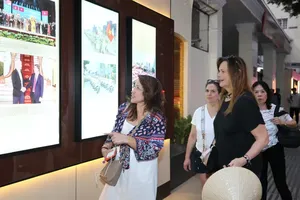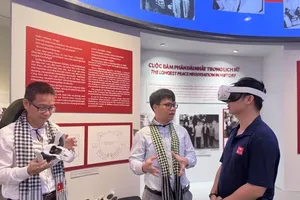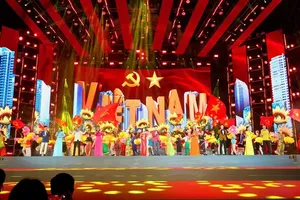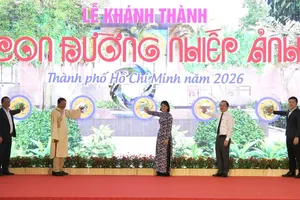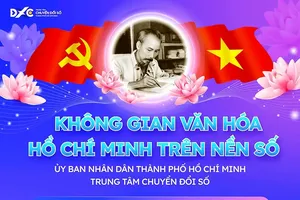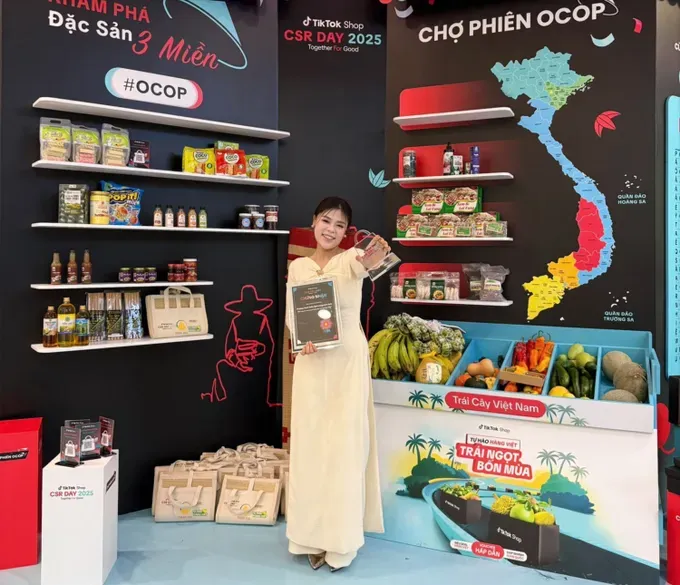
Patchwork of laws: plentiful, but not powerful enough
Deputy Director Nguyen Thi Thanh Huyen of the Department of Radio, Television, and Electronic Information (under the Ministry of Culture, Sports and Tourism) notes a critical legal gap. There are no specific, effective regulations for managing KOLs/KOCs, even as many of them show signs of violating laws and ethical norms.
“We need clear rules on creative freedom for public figures: what’s permissible and what’s not”, she proposed. “Additionally, we could implement measures like temporary bans on performances and media appearances for those who cause a negative social impact.”
Currently, the activities of KOLs/KOCs are governed by several legal documents, including the Law on Advertising, the Law on Protection of Consumer Rights, the Law on Cybersecurity, along with sub-law documents.
Article 15a of the Law amending and supplementing a number of articles of the Law on Advertising (effective from January 1, 2026) stipulates that the person who conveys the advertising product has the right to be provided with honest, complete, and accurate information about the organization, individual, goods, and services by the advertiser.
Under Article 19 of the Law on Advertising, influencers must comply with consumer rights laws, provide honest product information, and supply documents to authorities, bearing legal responsibility for non-compliant content.
Article 23 of the new Law on Advertising also stipulates that advertisers are responsible for preventing and removing violating content, providing information on violators when requested by authorities, and complying with all penalties or other handling measures imposed.
Other existing laws also apply. The 2023 Law on Protection of Consumer Rights provides safeguards against false advertising and outlines consumers’ rights to complain or sue. Furthermore, Decree 38/2021/ND-CP sets penalties for advertising violations, ranging from warnings and fines to temporary suspensions and confiscation of materials.
Meanwhile, the Ministry of Industry and Trade is drafting a new Law on E-commerce. This upcoming law will introduce new regulations covering the responsibilities of various parties in livestream selling and affiliate marketing. It is expected to be submitted to the National Assembly for approval in October 2025.
Despite these provisions, the legal framework is seen as inadequate. Director Le Quang Tu Do of the Department of Radio, Television, and Electronic Information points out that there are still no specific penalties for celebrity influencers who engage in false advertising; they are subject to the same general fines as any other citizen. For now, he believes the most effective deterrent is platform-level enforcement.
“I hope the platforms will cooperate with our department”, he urged. “For instance, if we fine a KOL on TikTok for deceiving consumers, TikTok should suspend cooperation with them for 3-6 months. This downtime would give them a chance to reflect.”
He also called on platforms like YouTube, Facebook, and TikTok to enhance their technical filters to proactively block illegal content and, crucially, to deny monetization for any channels that violate the law.
Echoing the call for platform responsibility, Deputy Head Nguyen Van Dung of the HCMC Department of Public Security’s Cybersecurity Division (PA05) argued that e-commerce sites must verify that products sold on their platforms have proper legal documentation, monitor content, and cooperate with police by promptly providing data when requested.
They must also train, guide, and organize training courses on law and security specifically for KOLs/KOCs to ensure professional ethics for this group.
The core issue, as highlighted by Lieutenant Colonel Nguyen Tien Cuong of the Ministry of Public Security’s Cybersecurity Department (A05), is a clear regulatory vacuum. “Vietnam currently lacks a complete legal corridor that directly and clearly governs the activities of KOLs/KOCs”, he stated.
While influencers operating as part of a legal entity can be managed under existing laws, individuals acting on their own are much harder to regulate. “This lack of a self-regulation mechanism is a loophole that must be filled.”
Influencers’ dilemma
From the perspective of KOLs and KOCs, the situation is fraught with its own anxieties. Many express concern over the legal ambiguity they face, feeling unfairly exposed when problems arise.
Despite seven years in the industry, KOC Long Chun (who boasts over 8 million followers across platforms) still worries about this legal gray area. “When we sign a contract, the brand provides all the official paperwork and quality certifications”, he lamented. “But if an issue like counterfeit goods is later discovered, we are the first, and often the final, to be held responsible. This should be a shared responsibility, especially for the agencies that issued the certifications in the first place.”
KOC Phuong Oanh Daily approaches her work with a strict personal code: “Be truthful, do the right thing, and be slow and steady”. As a food influencer, she feels an immense responsibility. “You can always earn more money”, she shared, “but in this line of work, once you lose your credibility, it’s incredibly hard to get it back. Authenticity and transparency are the keys to sustainable development.”
“Every content creator who wants to build a brand, wants to do something for themselves, for the country, must first respect the law, and to do that, they must understand what the law is. From that understanding, linked with issues of fine customs and traditions and relevant laws, they can create content that is attractive, has its own character, and contributes to promoting good things that are welcomed by everyone.”
Deputy Minister Ta Quang Dong of the Ministry of Culture, Sports and Tourism.
Head Dao Thi Nuong of the Vietnam Digital Content Creation Association (KLIC) acknowledged the industry’s growing pains. “KOL/KOC is a new profession here, so many creators lack legal and industry knowledge”, she said. “However, over time, core values like integrity, responsibility, and sustainability are being embraced as essential for survival.”
Ultimately, the solution lies in a combination of self-regulation, community oversight, and state management. Lieutenant Colonel Nguyen Tien Cuong emphasized that influencers need to practice self-control, guided by clear ethical standards. When this is combined with public feedback and a robust legal framework, he believes the “delusions of grandeur” seen in some influencers can be effectively addressed.







